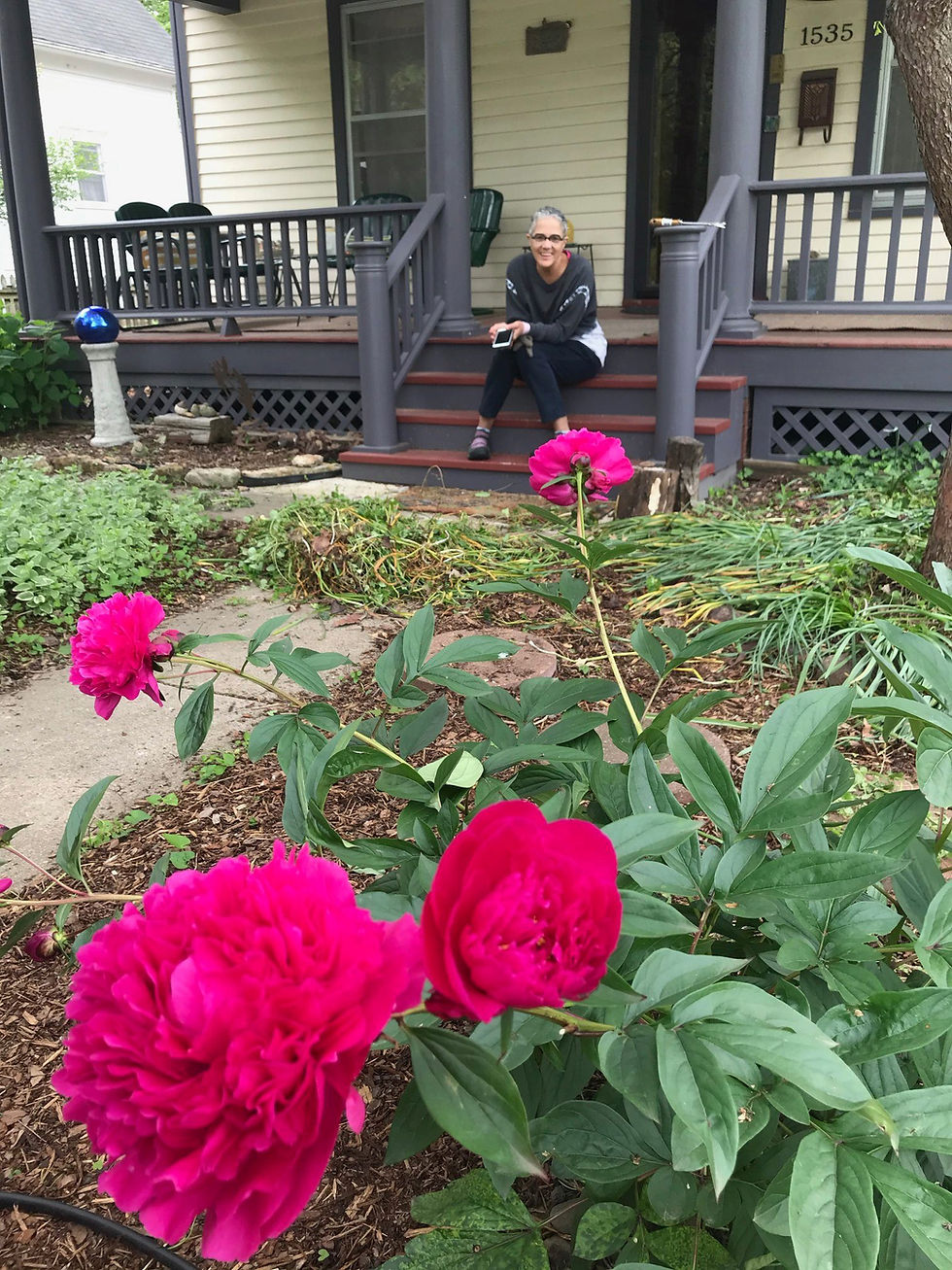9/11 From the Vantage Point of a Subway Dweller: Everyday Magic, Day 1058
- Caryn Mirriam-Goldberg
- Sep 11, 2021
- 5 min read
Updated: Sep 25, 2023

Twenty years ago it happened. Ten years ago I wrote this post. So much of it is still true, and there’s so much more to say about the heartbreaking state of polarity, divisiveness, and home-grown hatred in our country. About the pandemic-catalyzed resilience and mutual aid as well as abuse, addiction, anxiety, poverty, and despair. About all those gone, recently or a long time going. Also about the changes that make us better and better able to face our collective American history, especially the worst of who we’ve been and can be. About perseverance, innovation, and the love that abides. Especially about the love that abides and the importance of memory. Here is my little love note for part of where I grew up, in the shadows of the towers that went up when I was growing up.
“Those god-awful towers,” my father said in disgust. He wasn’t alone: we all thought they were wicked ugly, too big, and besides, they would and did block the light from our neck of the woods, three blocks away, never mind that we were underground. Down the steps to the Fulton-Nassau Street station was a small arcade of stores, including our own, the Subway Stamp Shop, which my dad and grandpa ran.
I grew up spending many Saturdays and holidays there, emerging frequently for walks around the block, heading with Grandpa to Chock’full’o’nuts on the corner (where I would dip my chocolate donut in his coffee), forays to get ice creams of a slice of pizza, and trips to the bathroom, which entailed going to the building next door, getting the key, riding the elevator up eight floors, and walking down a long hall.
Below ground was a kind of kid paradise. There was a candy stand, complete with stacked rows of Chuckles and M & Ms. Need I say more? There was also a jewelry shop full of silver and glass, a shoe-shine place with an ancient Black man who always smiled at me and told me how beautiful I was, a barber shop where they spent more time reading the paper and complaining than cutting hair, and a fabled diner where I sat on a high stool inhaling grilled cheese sandwiches and chocolate malts. Faced with the choice of spending the day helping my mom with housework in first our Brooklyn triplex and later our New Jersey Levitt house or coming to the store, it was no contest.
The towers started being built when I was an impressionable kid of six and were finished when I was nearly 12. To say everyone around us hated them was an understatement. It wasn’t just the shadow they cast but what they symbolized to my dad and other small business owners who tended to despise the ruling class, particularly those on the rung just above them who worked white-collar jobs in the towers and had impressive college degrees.
“College-educated idiots,” my dad called them and everyone else to whom the term the applied which, in his mind included millions. It didn’t help that between my three siblings and me, we amassed seven college degrees, the first generation in our family to not go from high school to largely a life of full-time work. My dad started college but was derailed from where it might lead him by becoming a father very quickly (to me) while having to balance multiple jobs in between his schemes — often successful, for a time — to make money, which included selling plus-sized polyester clothes at the Englishtown Auction, working as an antique auctioneer, some kind of tax shelter deal that didn’t work out too well, and occasionally buying out stamp and coin supply shops.
When the plane hit the towers, I reacted like most of us, shocked, but consoling myself with the only thing my mind could imagine: it was an accident. When the second plane hit, and then I heard from some construction workers on New Hampshire street in downtown Lawrence that the first tower “went down like a pancake,” I walked quickly to my car, shut the door, turned up the news and cried. I also raced home to make phone calls (this was before everyone carried a cell phone), first to find out if my brother, who worked seven blocks away was okay, then to call my dad.
My brother couldn’t be reached for a little while, but we soon heard he was fine — he walked the other direction from the towers to catch the ferry home. He was shaken but intact after feeling his whole building shake, windows breaking and then everyone oddly calm and organized in getting themselves outside and home.
My father, who had since moved the business to Pennsylvania, was incredulous. The towers we always hated were suddenly a broken object we loved. They no longer symbolized class warfare but instead a unity that enveloped us. Just as the signs around the world read, “We are all New Yorkers,” those of of us with downtown NY roots were now all Twin Tower people. “The whole world’s gone crazy. This is going to lead to big wars, a mess financially, the whole world falling apart,” my father said. Then he added his rhetorical response to the world: “What you gonna do?”
Yet most of what it led to wouldn’t include my dad. He was diagnosed with advanced pancreatic cancer, ironically enough, on September 11, 2002. I found out late at night when, coming from from a 9/11 service that I read a poem at, Ken told me my sister called and said I should call her back immediately. After calling her, I spoke to my dad, who said, “What you gonna do?” He died four months later.
Now it’s ten years since the attack. Most years since then, I’ve returned to the store, or at least tried to. The entrance to this part of the subway is usually closed (due to the damage and then the construction from 9/11), but still, I always get my picture taken in front of it. In fact, the first thing I do when going to the city is usually the pilgrimage to the site of the store. Posing with the entryway is like posing with part of the family. In the last few years, the stores in the neighborhood changed drastically. Gone are the small locally-owned clothes from India or sporting goods stores, little delis and pizzarias. Suddenly, there are all chain stores around, and I say suddenly, I mean mostly in the last year. The world where I grew up is layers beneath the one I see.
Yet several years ago, the entrance to the subway arcade was open. I ran down the stairs to find every store out of business and locked up, and the entrance to the subway gated and locked too. Standing there, on the cement floor in the middle of these ghost stores, I felt strangely at home. All of this world may be gone, but in my mind, I hear words like “Angola” and “pre-folded hinges” and “stamp tongs” and see myself at age seven, drawing abstract snakes at the big table of stamps under glass in a tiny store. My grandfather is chain-smoking, my father is arguing with his mother on the phone, and the store is crowded with a Hassidic man looking over stamps beside a Sikh in his turban and an ex-showgirl in her pancake makeup and heels. We were all subway dwellers, so far underground and away from how the future would rise and fall.







Comments